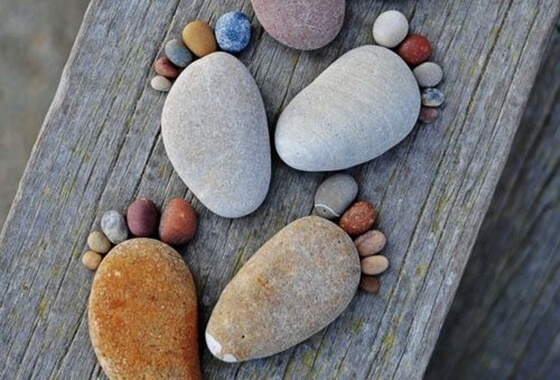When Friends Disappoint Us

Friendships can expire, they turn off like the light of a firefly when it is found, like the first cold wind that brings in fall after the summer. There are people who disappoint us, and the wound left behind from that loss hurts and makes us mad, there is no doubt. However, in time we learn and begin to be much more selective.
As strange as it may seem, just as it happens in friendships, it can also occur in love. We have the friends we think we deserve. It also has a lot to do with self-esteem, with our ability to set up filters, and understand that relationships, no matter what type they are, are dynamic entities that change and mutate like our own personalities.
“A friend is a gift you give yourself.”
-Robert Louis Stevenson
There are those who would affirm that “losing in love hurts, but losing a friend kills.” It is as if in some way that bond based on complicity, in that intimate camaraderie, spontaneous and full of emotional ‘nutrition’ confers on us support that is equal to or greater than the relationship with have with a significant other.
So, it is worth stating that there is an abundance of studies on friendship and its processes, and not just in the area of emotional health or a relationship with our significant other. Social psychology tells us something very interesting: losing a friend hurts as much as losing the one you love.
The study, published in the magazine Epidemiology and Community Health, clarified that this feeling was experienced both by men and women. A friend, for most people, is a vital part of our everyday life, to the point that they are essential to our physical and emotional well-being.

Friendships We Do Not Know How to End
Blanca is 40 years old and has decided to end a friendship that has lasted for many years. In fact, it has lasted her entire life. She and Elisa grew up together because their mothers were friends. That little girl with brown eyes, long legs, and bossy quickly turned into her refuge and her hell in equal parts.
When they were little girls, Elisa would force her to get involved in activities she wanted no part of. She broke her arm when she tried to climb over the school wall because that is what Elisa ordered her to do, it was with her that she confided in about her first loves. It was also her who would steal all the boys that Blanca liked. Throughout all those years, Blanca maintained a co-dependent relationship with a manipulative person, someone who she did not know how to stop or how to say, “stop taking advantage of me.”
Many of us can identify with this example, but the important question is: why is it so difficult for us to end a friendship that brings us more problems than benefits? Following are a few explanations:
Reasons why we are Reluctant to say “Enough” to a Friend
The first reason is very simple: we feel as if we owe that person our loyalty. Perhaps it is because of all the shared experiences, there have been many years spent together and a lot of guarded confidences. However, there is something we need to have very clearly in mind: Every relationship, whether it is that of a couple or a friend, requires balance and reciprocity. Because, any loyalty towards a person has no meaning if there is no respect, if there is not true reciprocity.

The second aspect has to do with the idea that we can change other people. We tell ourselves that we have to be patient, that what happened today will not happen again if we warn them, tell them that they offended us, that what they did hurt, disappointed us…
Another aspect that is, without a doubt, concerning and affects many people is believing we have the friends we deserve. We tell ourselves that we all make mistakes, we all have defects, and occasionally it is normal to not get things right and to cause harm without wanting to.
Sometimes, fear of loneliness makes many people carry on their backs friends who are harmful, who are draining and toxic. That is not right, and because of that it is important to remember that good friends are those who make us better people each day, who do not try to change us but rather strengthen us as human beings, because we ourselves know that we deserve well-being, balance, and happiness.
Disappointment in Friendship Requires us to make a Decision
Gretchen Rubin, author of an interesting work titled, “The Happiness Project,” explains that many of us get through our daily lives by drifting. This concept is interesting because, just as it is described by the author, drifting means making the decision of saying nothing about what we want or do not want in our own lives.
“There are those who think that it is enough to just want to be friends, as if to be healthy it is enough to want to have health.”
-Aristotle
Not making or postponing decisions implies living with a substitute for happiness where we are joined by insignificant relationships with people who disappoint us time and time again, yet we still keep them by our side. We allow it out of loyalty or fear of being alone, just as was previously pointed out.
It should be clear that we have left the years of childhood and adolescence behind when we did not apply filters. Where we let anyone in because we wanted to have new experiences and emotions. Maturing means, above all, being selective and looking for quality in our relationships.
Disappointments, even if not done intentionally and repeatedly, give us a clue of the type of person they are. We must act and make a decision, even if it hurts, even if that friendship has lasted half or all of our life, because if it is harmful to us, if it hurts and breaks our heart, it is not friendship.
We need to learn how to be selective, to value true friendship, those that are magical and exciting. Those that teach us and contribute something to us while we also contribute something, that help us to develop into a better version of ourselves.
This text is provided for informational purposes only and does not replace consultation with a professional. If in doubt, consult your specialist.








